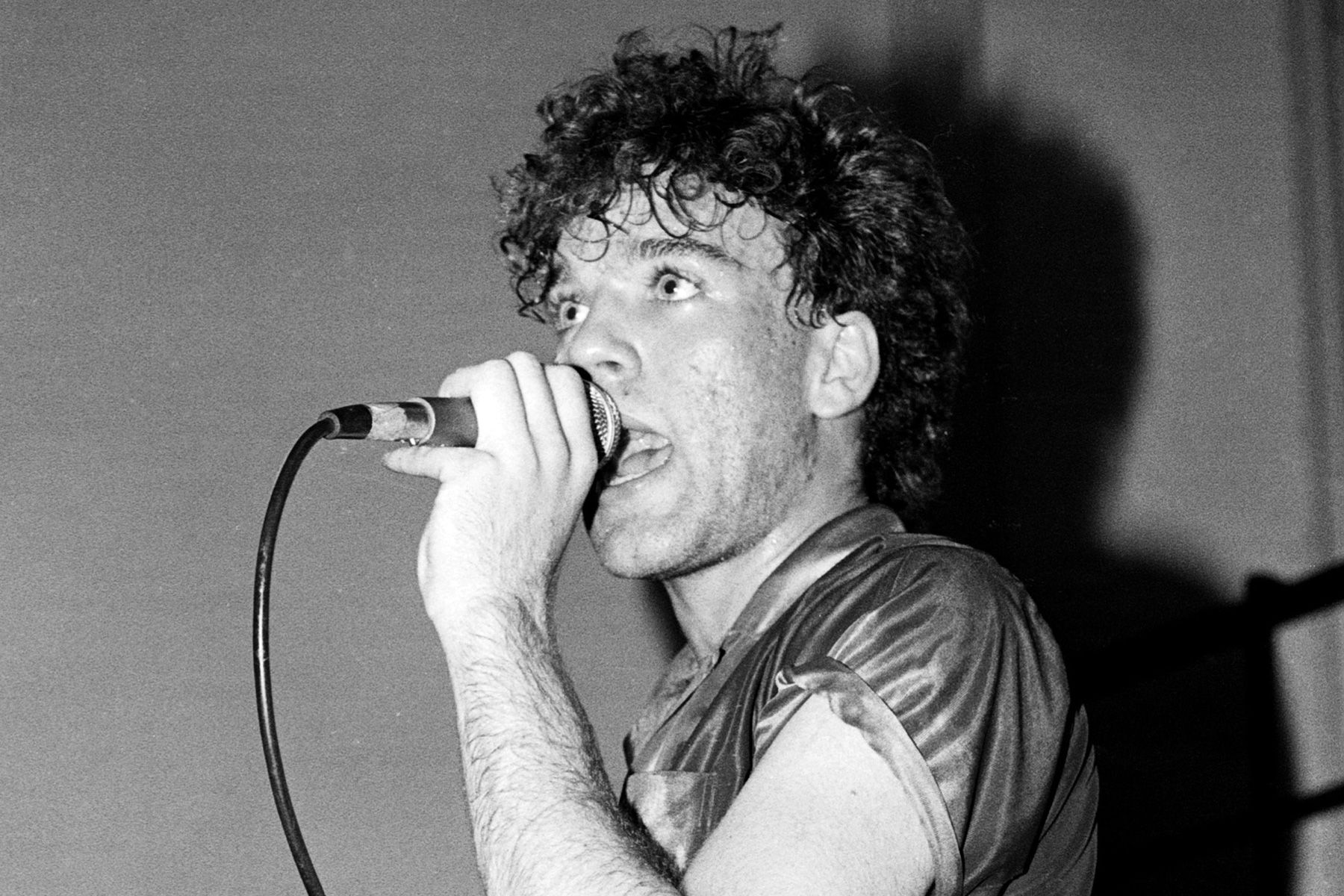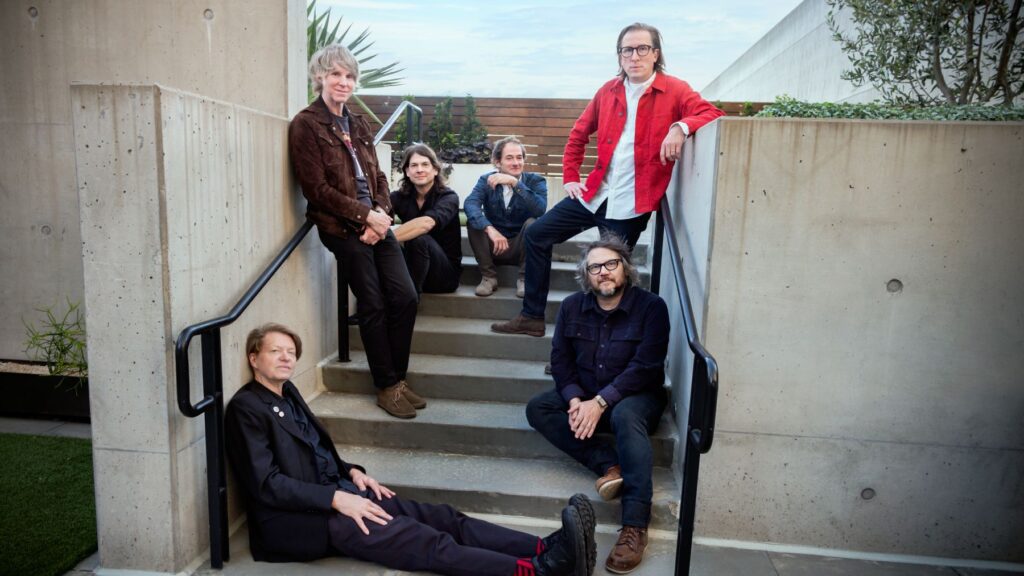
R.E.M. Celebrate 40th Anniversary of ‘Radio Free Europe’ With New Reissue
R.E.M. will reissue their classic 1981 debut single, “Radio Free Europe,” this summer, making it available in its original form for the first time in 40 years. “Radio Free Europe (Original Hib-Tone Single)” will be available as a 45-rpm seven-inch on July 23rd, pressed in Athens, Georgia, with the original sleeve artwork featuring Michael Stipe’s photography. The release kicks off the birthday celebrations for the Southern college-town bar band who turned the world upside down.
It’s the ultimate rock & roll origin story: Four guys walk into a garage to bang out a record. But when R.E.M. made “Radio Free Europe,” they also made history. They recorded it with rookie producer Mitch Easter, at his new Drive-In Studio (i.e. his folks’ garage) in Winston, North Carolina. The single came out on the tiny Hib-Tone label, with “Sitting Still” on the flip side, and went on to blow minds around the world. The single brought a fresh sense of mischief and excitement to the rock scene.
“We were all just kind of finger-painting,” Easter says. “They weren’t super-deliberate about anything. I loved that about the sessions. Even when we did the LPs, nobody was really taking any orders from anybody. There might have been people advising R.E.M. on the business end of things, to do this, that, or the other. But they pretty much ignored all of them.”
As part of their 40th anniversary plans, R.E.M. will also release their 1981 demo tape, Cassette Set, which has never been commercially available before. It will be sold as a bundle with the single, in a limited edition of 1,500 copies, exclusively through the band’s official store. This release reproduces the original homemade cassette packaging, with Stipe’s hand-written labels and early versions of “Radio Free Europe,” “Sitting Still,” and “White Tornado.” R.E.M. will also issue a limited-edition custom cassette player, produced by Recording the Masters.
R.E.M. re-recorded “Radio Free Europe” for their 1983 debut album, Murmur, produced by Easter and Don Dixon. The new version of the single actually cracked the U.S. Hot 100, peaking at Number 78 — an unthinkable feat for a band like this. The 1983 “Radio Free Europe” is the famous one that everybody knows. But the original indie single has a raw, feverish rush of its own. For years, fans treasured it and passed it hand-to-hand on mix tapes. The 1988 collection Eponymous included Easter’s mix of the single — but the original Hib-Tone mix hasn’t been reissued until now.
Easter had never even heard the band before they walked into his garage. “I met them through a mutual friend — Peter Holsapple of the dBs,” he recalls. “He was living in New York, and the guys were playing their first shows up there, and they stayed at his place. They were talking about when they went home, they wanted to record something. Peter told them about my place, which had just started. I had seen a poster for them in a club in Raleigh, North Carolina, and the poster led me to believe they were going to be some sort of electronic band. But when they came in, they stayed at my house before the session, and we sat around playing records, and it was apparent they were not going to be an electronic band.”
Everything about the April 15th session was quick and cheap. It was only Easter’s third recording job. (As he quips, “It wasn’t like I’d just been working with Pablo Cruise.”) They emerged with a three-song demo. The Cassette Set tape captured their playful side, with a brief polka version of “Sitting Still.” The band came back a few weeks later to add a few overdubs to “Radio Free Europe” for the July single. The initial pressing was a thousand copies, which seemed ambitious at first — but the song won them an intense cult following. Just last year, it made the top ten of Rolling Stone’s list of the greatest debut singles of all time.
“Radio Free Europe” defied all the corporate-rock rules. For one thing, R.E.M. came from Athens, Georgia, off the media radar. “Everything had moved back to L.A. and New York,” Easter says. “At least it felt like it. So we were starting all over again with the garage-studio notion. Engineering-wise, it could’ve sounded more posh. But in terms of what they did, it was perfect. A few months later, we did the Chronic Town sessions, then we did the Murmur record, but they always kept getting better.”
Posh it wasn’t, but the band’s DIY energy came across loud and clear in the garage. Easter didn’t try to change a thing. “I had this band-centric idea: ‘What is it that you do, and what is it that you want to do? Okay, let’s maximize that.’ I didn’t come into it like, ‘Well, my sound is all about the organ.’ It was hard for bands in those days to find studios that they enjoyed working in. Because the guy that ran the studio — and I say ‘guy’ because it was 95 percent guys — he was some older person, set in his ways. If you’re a struggling band, you can’t afford to go to the Record Plant or the Power Station or whatever. For the first several years of me doing this, at least half the bands came in with some horror story about this terrible time they had someplace.”
He could sense some related apprehension when he joined R.E.M. at the Reflection studio in Charlotte, N.C. later to record Murmur: “There were people around that scene, other bands, looking at R.E.M. like, ‘Who are these guys? I don’t know about all this.’ There was this sense in the air that something was changing, and the old guard didn’t like it.”
But for artists around the world, “Radio Free Europe” was the start of a new era. “They were putting energy back into things,” Easter says. “I played enough shows with people standing at the back by the bar with their arms folded, but all of a sudden, something happened so that bands like R.E.M. had audiences right up at the stage, digging it. And I just thought, [it’s] about time. Because this is supposed to be fun, you know?”
Easter had success with his own acclaimed band Let’s Active — start with Afoot and Cypress. He also produced classic albums for other art-pop eccentrics in the years to come, ranging from Pavement (Brighten the Corners) to Game Theory (Lolita Nation) to Helium (The Magic City). But there’s something special about “Radio Free Europe.” “Those guys just hit the right note,” Easter says. “There’s a lot of good stuff that falls through the cracks, or it’s discovered later and enjoyed briefly, then it goes away again. But this stuff, it just stayed alive.”




